Introduction
The best diet for Japanese Chin ensures they stay healthy, energetic, and well-nourished.
-
Small breed dogs like the Japanese Chin have unique dietary needs
-
Proper nutrition promotes longevity and reduces health issues
-
This guide will help you choose the best food for your Japanese Chin
-
Knowing what and how to feed them is essential for their overall well-being
-
Learn key nutrition tips and food recommendations for your Japanese Chin
1. Nutritional Needs
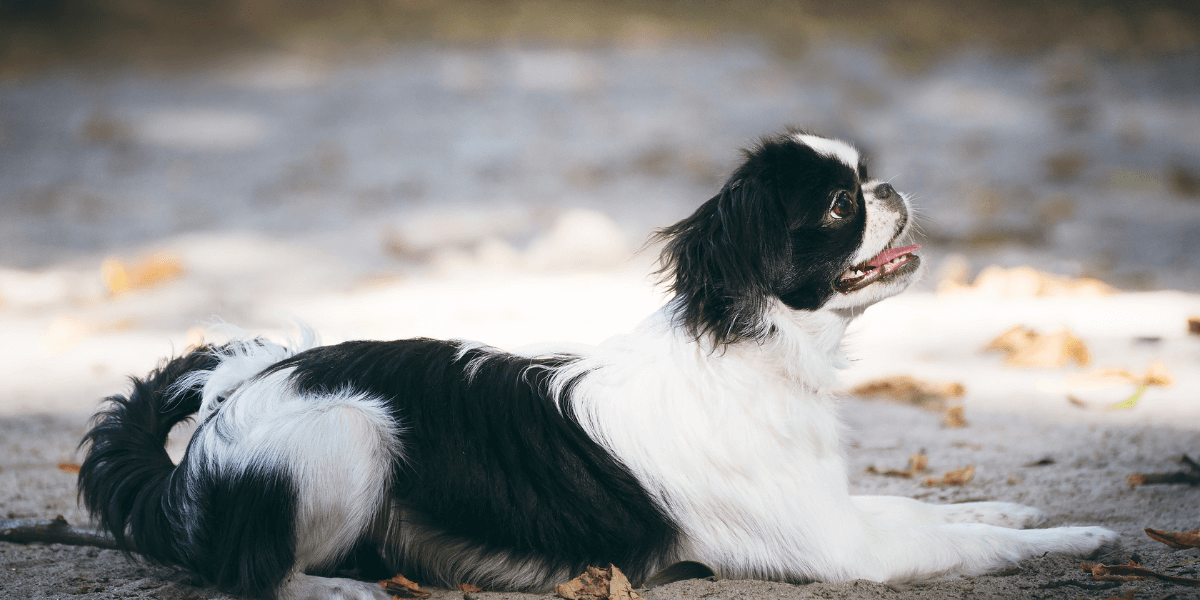
Understanding the basic nutritional requirements for Japanese Chin.
- Protein: Essential for muscle development and energy
- Fat: Provides energy and helps with healthy skin and coat
- Carbohydrates: Supports energy and maintain blood sugar levels
- Vitamins: Vital for immune system support and overall health
- Minerals: Necessary for bone health and body functions
- Fiber: Aids in digestion and prevents constipation
- Water: Ensure fresh water is always available
- Portion Control: Small breed dogs need controlled portions to avoid obesity
2. Best Types of Food
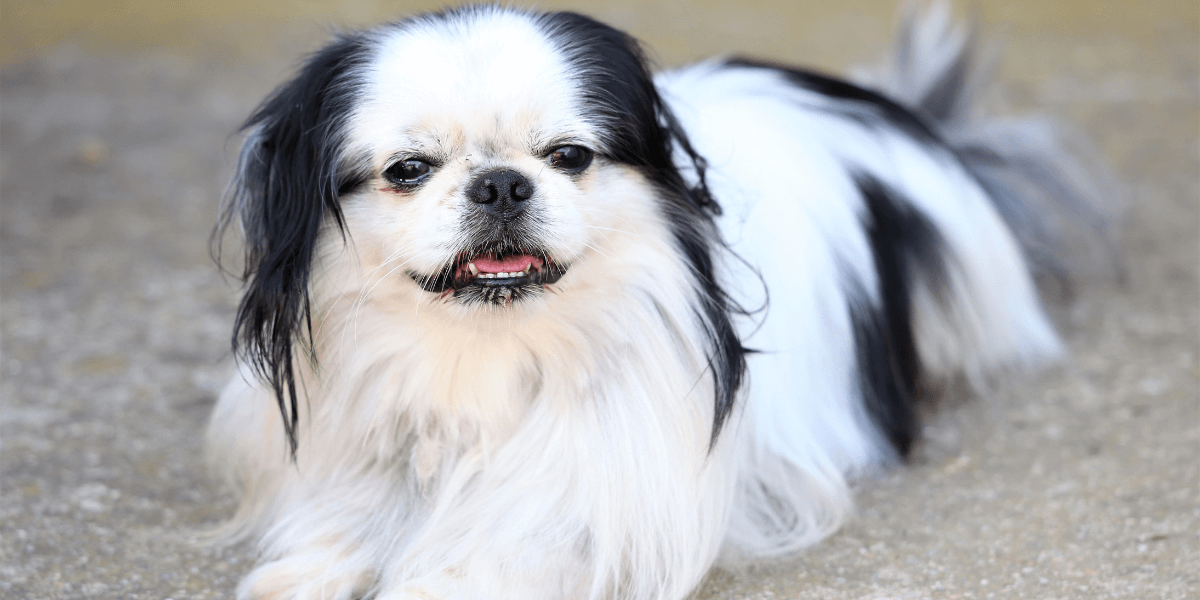
The best diet for Japanese Chin includes high-quality protein, whole grains, and vegetables.
- Dry Kibble: Promotes dental health and easy storage
- Wet Food: Higher moisture content, ideal for hydration
- Homemade Meals: Can be tailored to specific nutritional needs
- Raw Diet: A balanced raw diet offers high protein but needs careful preparation
- Grain-Free Food: Good for dogs with grain allergies or sensitivities
- Small Breed Formula: Designed with small kibble for easier chewing
- Senior Dog Food: Lower in calories for older dogs with slower metabolism
- Puppy Food: Higher protein content for growing puppies
3. Feeding Schedule
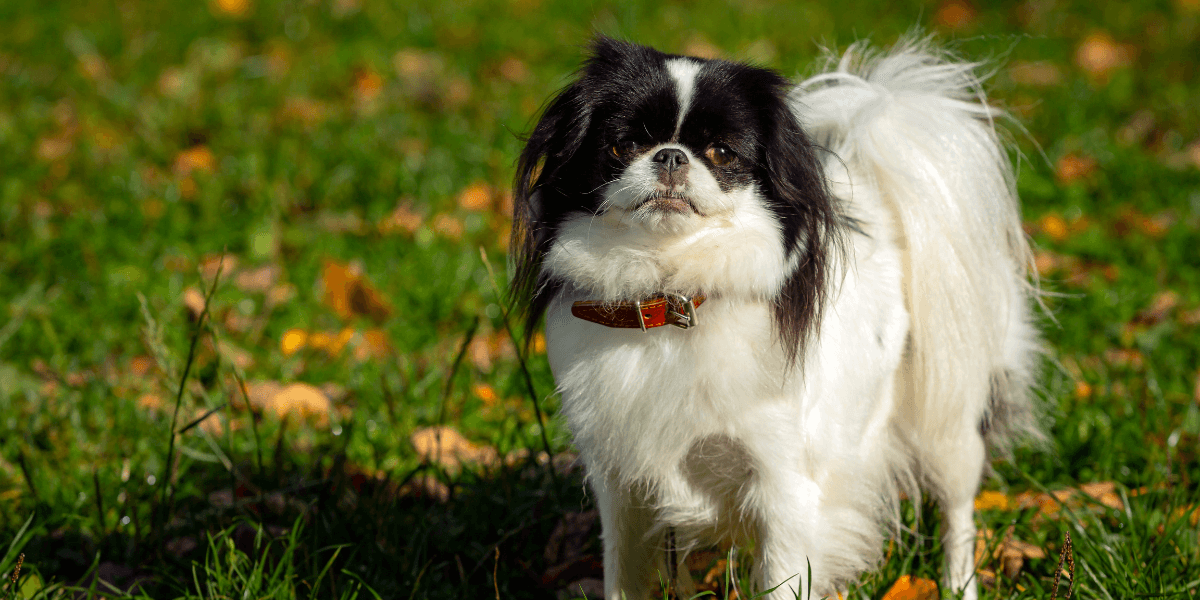
Setting a proper feeding routine is essential for your Japanese Chin.
- Twice Daily: Adult dogs should be fed two small meals a day
- Puppy Feeding: Feed puppies three to four times a day
- Avoid Free Feeding: Control portions to prevent overeating
- Consistency: Stick to the same feeding times daily
- Monitor Appetite: Keep track of their eating habits for health changes
- Avoid Overfeeding: Keep portions appropriate for their size and activity
- Fresh Water: Always provide fresh, clean water with meals
- Meal Time: Give them a quiet space for eating to avoid stress
4. Common Dietary Issues
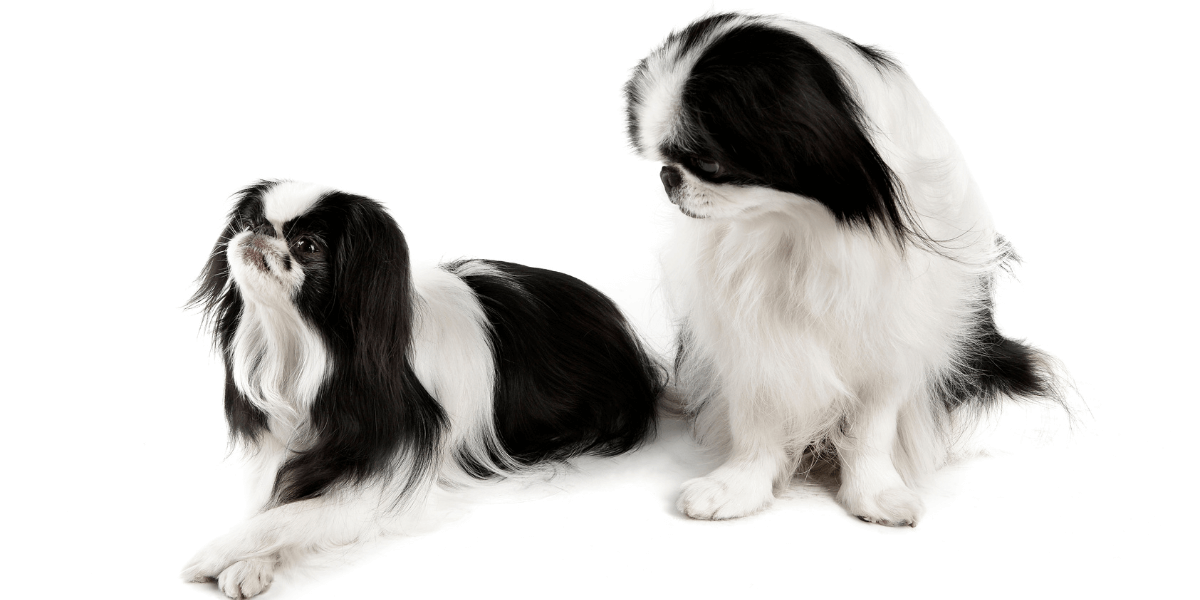
Recognize and address common dietary problems in Japanese Chin dogs.
- Obesity: Small dogs are prone to weight gain if overfed
- Allergies: Monitor for signs of food allergies like itching or vomiting
- Sensitive Stomach: Some dogs may require easily digestible foods
- Picky Eaters: Try different flavors or food types for a variety
- Dental Issues: Use dental treats or kibble to support oral health
- Hypoglycemia: Small breeds may need more frequent, small meals
- Diarrhea: Avoid sudden changes in diet to prevent stomach upset
- Gas: Introduce new foods slowly to reduce digestive issues
Discover the best foods and supplements for your Japanese Chin by exploring our guide to Pembroke Welsh Corgi nutrition.
5. Best Foods for Puppies
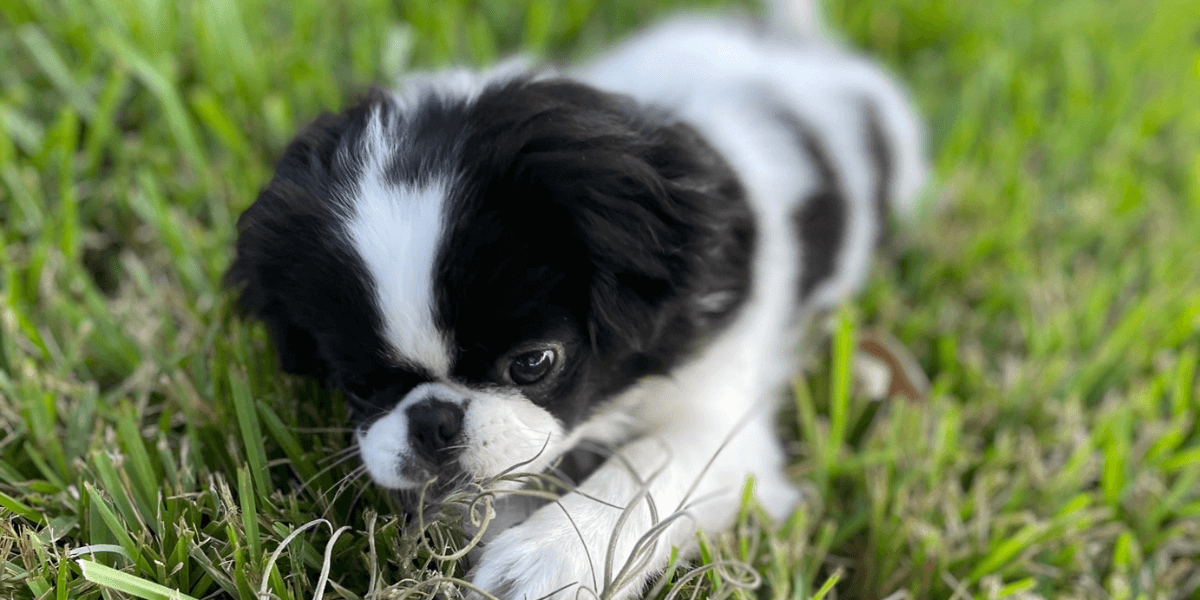
Nutrition tips to support the healthy growth of Japanese Chin puppies.
- Puppy-Specific Food: Contains higher protein for growth and energy
- DHA: Essential for brain development in growing puppies
- Small Kibble: Easier for puppies to chew and digest
- Frequent Feeding: Feed small, frequent meals for balanced energy
- High-Calorie Content: Necessary for their rapid growth phase
- Calcium: Supports healthy bone development
- Omega-3 Fatty Acids: Promotes skin and coat health
- Transition to Adult Food: Gradually switch to adult food after 12 months
6. Foods to Avoid
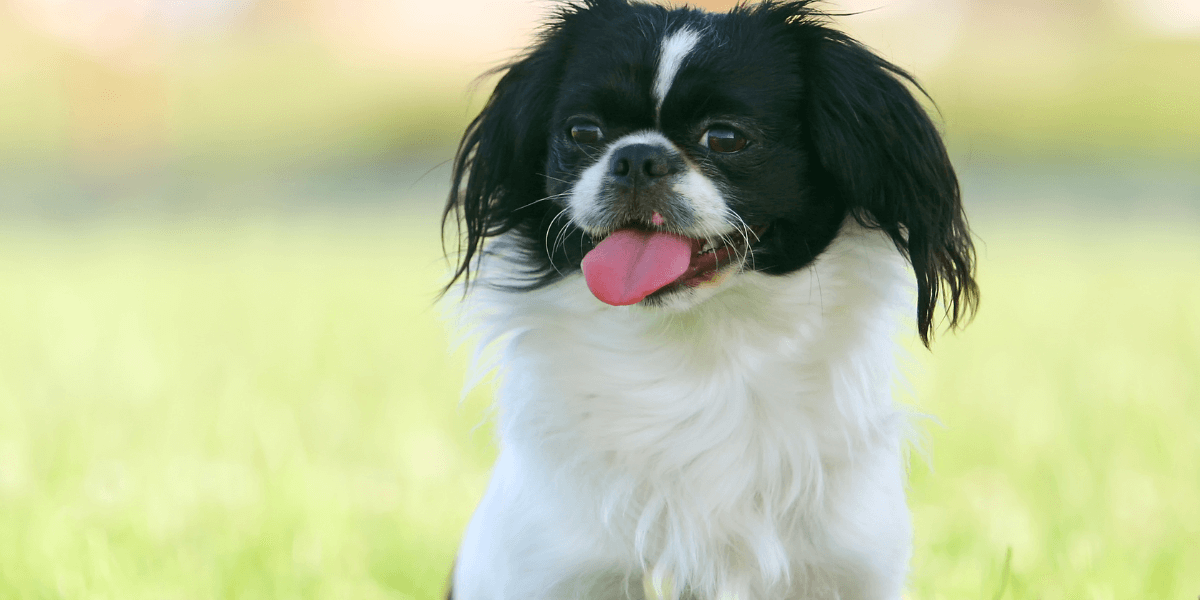
Be aware of harmful foods that should never be fed to your Japanese Chin.
- Chocolate: Toxic to dogs and can cause serious health issues
- Grapes: Can lead to kidney failure in dogs
- Onions: Cause anemia and damage red blood cells
- Garlic: Similar to onions, it can cause toxic reactions
- Avocado: Contains person, which can be harmful to dogs
- Bones: Can splinter and cause choking or digestive injuries
- Raw Dough: Dangerous due to the yeast expanding in the stomach
- Xylitol: A sweetener found in candy that is toxic to dogs
Learn about foods to avoid for your Japanese Chin by understanding common health issues in Yorkshire Terrier.
7. Supplements and Treats
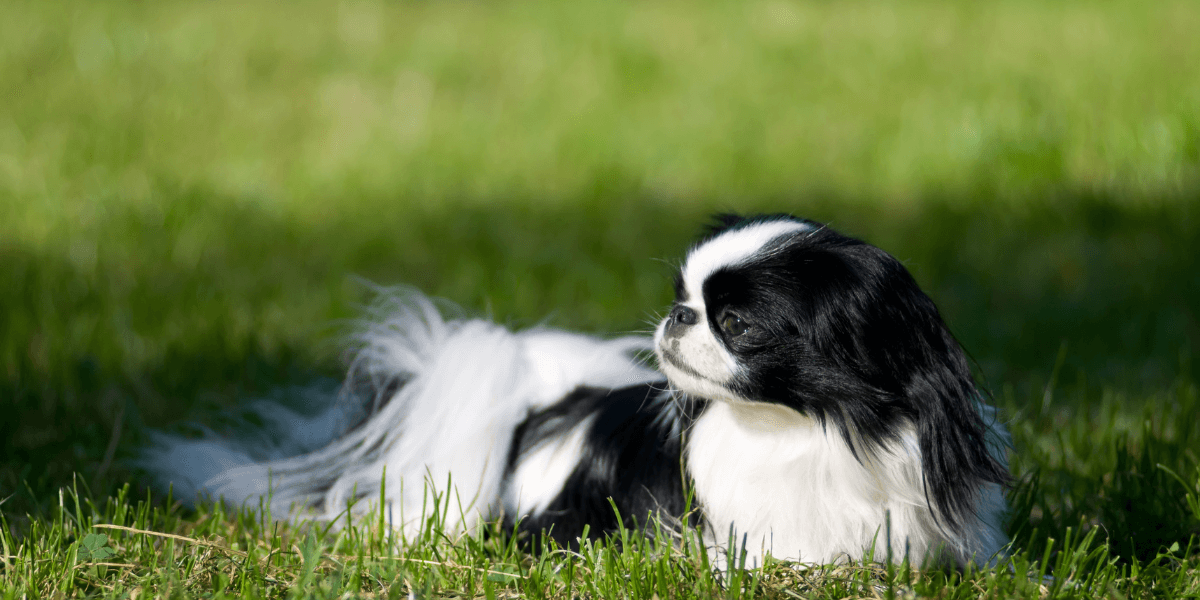
Use supplements and treats wisely to enhance your dog’s diet.
- Fish Oil: Supports joint health and shiny coats
- Glucosamine: Beneficial for joint support in older dogs
- Probiotics: Helps with digestion and maintain gut health
- Dental Chews: Improves oral hygiene while satisfying chewing needs
- Low-Calorie Treats: Ideal for training without causing weight gain
- Multivitamins: Fills nutritional gaps in your dog’s diet
- Omega-3 Fatty Acids: Promotes healthy skin and a shiny coat
- Limit Treats: Treats should make up no more than 10% of their diet
Enhance your Japanese Chin's diet with the right supplements and treats; see our guide to Golden Retriever nutrition.
FAQs
1. What is the best diet for Japanese Chin puppies?
- The best diet for Japanese Chin puppies includes high-quality proteins
2. What should I feed a Japanese Chin puppy?
- Feed high-protein, puppy-specific food with DHA for healthy growth
3. Can Japanese Chin dogs have grain-free food?
- Yes, grain-free food is suitable for dogs with grain sensitivities
4. What are the signs of food allergies in Japanese Chin dogs?
- Look for itching, vomiting, diarrhea, or skin irritations after meals
5. Are supplements necessary for Japanese Chin dogs?
- Supplements like fish oil and glucosamine can help with coat and joint health
6. How can I prevent obesity in my Japanese Chin?
- Feed them controlled portions and avoid overfeeding treats
7. What foods should I avoid feeding my Japanese Chin?
- Avoid chocolate, grapes, onions, garlic, bones, and xylitol-sweetened products
Conclusion
- Providing the best diet for Japanese Chin promotes their long-term health and happiness
- Feed them high-quality food tailored to their size and life stage
- Always monitor their weight and adjust food portions as necessary
- Avoid harmful foods and provide clean water with every meal
- Proper nutrition leads to a healthier, longer life for your Japanese Chin
- Start incorporating these tips to improve your dog’s diet today




